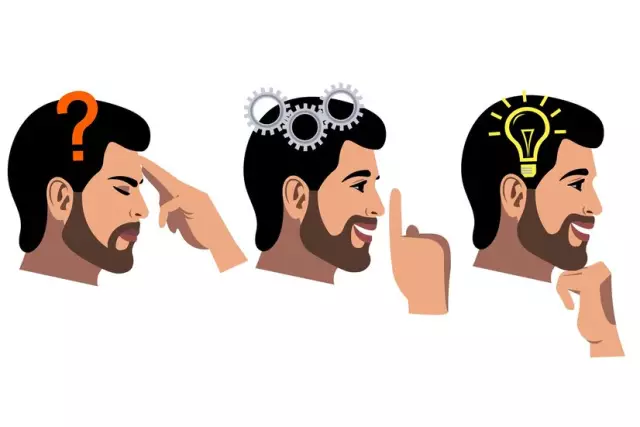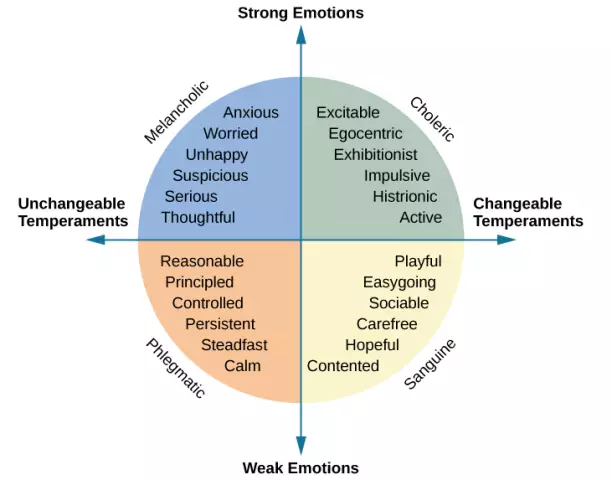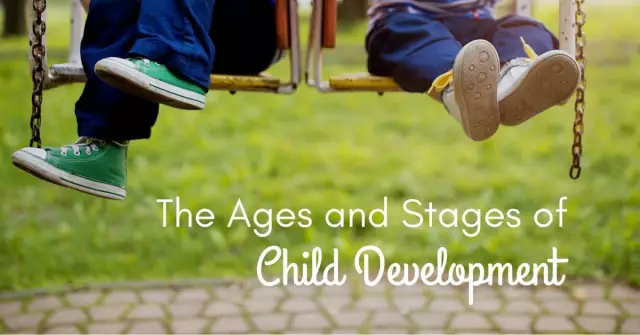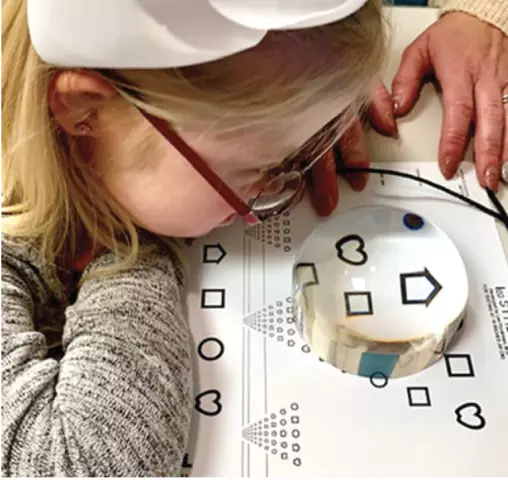- Author Rachel Wainwright [email protected].
- Public 2023-12-15 07:39.
- Last modified 2025-11-02 20:14.
Human character formation

Translated from Greek, the word "character" means "seal, chasing". That is, a person-specific definition of his social qualities. The attitude towards the people around, based on the psychic core of the personality, is manifested in behavior, especially in situations close to extreme.
Basically, the formation of a person's character is determined genetically, the factor of education has a powerful force, but it is not decisive. In early childhood, children are mainly cared for, fulfill all their desires, use a system of rewards and punishments. Some skills are fixed at the level of unconditioned reflexes: something cannot be done, but something, on the contrary, is needed. But the formation of a child's character is not limited to the educational factor. What means absolutely nothing to one kid is a tragedy for another. In relation to the world, the most important factors are innate unconditioned reflexes, the so-called instincts:
- Food grade;
- Defensive;
- Indicative;
- Parental.
The degree of manifestation of a person's instinctive activity affects the formation of character, and regardless of temperament. Kind people are not always fat, and thin people do not have to suffer from peptic ulcer disease.
As far as instincts are expressed, unconditioned reflexes are developed, which are entirely under the control of the cerebral cortex.
Character formation factors
The formation of character, oddly enough, begins in the prenatal period of development and depends on the state of health of the mother. The general hormonal background of the expectant mother affects the behavior of the fetus. The main hormonal factors of character formation depend on the amount of synthesized adrenaline. It is a stress hormone, the release of which into the bloodstream naturally affects the development of the child. Night shifts, sports, and intense physical activity prior to labor all contribute to a significant amount of stress hormone. A child is born not always hardened, but often tired of violent emotions long before his birth.
The opposite situation, when the pregnant woman is in a half-asleep, passive state for the entire period of bearing the child, the fetus receives hormones aimed at digesting food, sleeping and resting. Of course, such a state of the fetus will certainly affect the formation of the character of the child.
In the first months of life, a person imitates his relatives. The actions and forms of behavior of the baby depend on the psychological reactions of parents, grandmothers and grandfathers. From two to ten years, character formation goes through a special, sensitive (sensual) stage. The child perceives and adopts the style of behavior of others:
- Adults among themselves;
- Adults with children;
- Children among themselves.
In this age period, the formation of a person's character is going through the stage of laying the basic moral attitudes. The baby develops a sense of criticality towards the actions of the people around him. By the age of twelve, a basic core of character is formed, including an attitude towards truth. As far as the child understands the "truth" correctly, he will become "educated" later.
The period of the so-called "transitional age" is marked by a heightened sense of justice, which children perceive in different ways. Nevertheless, negativism reactions are common in almost all adolescents. Their manifestations vary. At this age, the formation of character is practically completed. Neither education, nor further upbringing, nor a change of environment - practically nothing any longer affects the development of the qualities of a person's character. The core of the personality does not undergo cardinal changes until the end of life.
However, character formation factors such as reward and punishment (to a much lesser extent) continue to have a corrective influence on human behavior. Personal reactions in the adult period of life depend on the external information field, which includes the following types:
- The opinion of people about the individual;
- The actions of others;
- Society ideology;
- Artistic characters: their thoughts, judgments, actions;
- Cinema;
- Mass media, including the Internet.
And in adults, one might say, there is a further formation of character, subject to reassessment of their own behavior. Self-education can soften the manifestations of aggression, passivity, rejection of the opinions of others. However, in extreme life circumstances, instinctive manifestations of nature again appear. Therefore, people actively involved in self-education, as a rule, avoid such life situations.
Features of character formation

Human traits are predetermined by his heredity. The main emotional background of mental functions is laid in the prenatal period of fetal development. At this time, the child receives exactly the same composition of blood that circulates in the mother's body. Subsequently, when breastfeeding, the baby receives the same hormones with breast milk. In this period of life, the features of character formation largely depend on the emotional mood of the nursing woman.
The core of a person's personality is his attitude to the world around him and external manifestations: actions, emotions, active or passive actions. The upbringing factor plays an important role in the formation of character, but it is not decisive. The system of rewards and punishments promotes the development and consolidation of conditioned reflexes, which are under the control of the cerebral cortex. The higher a person's intellect, the stronger the brake system works, canceling unseemly actions in society.
However, one should not forget that true character traits are visible only in extreme situations, when innate reflexes are manifested.
Found a mistake in the text? Select it and press Ctrl + Enter.






